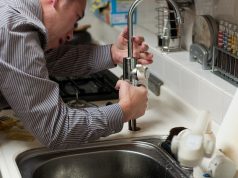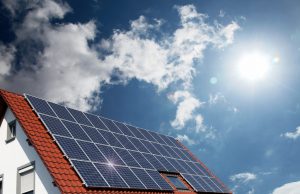
When considering a new boiler installation, it’s essential to take into account the efficiency and comfort it can bring to your home. The installation of a boiler is not a simple DIY job. It requires a thorough understanding of plumbing and heating systems, as well as proper safety measures.
Expert heating engineers bring a wealth of experience to ensure that your new heating system is fitted correctly, operates at peak efficiency, and complies with current building regulations.
Choosing the right boiler for your home hinges on a variety of factors including the size of your property, your hot water demands, and the existing heating system.
It is important to consult with a professional to determine which type of boiler – combi, system, or conventional – is most suitable for your needs. A well-chosen boiler not only optimises energy usage but also provides a steady flow of hot water and comfortable temperatures throughout your home.
Key Takeaways
- Professional installation is crucial for safety and efficiency.
- Correct boiler selection is dependent on home size and water usage.
- Thorough planning ensures successful installation and operation.
1. Selecting the Right Boiler for Your Home
Choosing the right boiler is essential for efficient heating and can significantly impact your comfort and energy bills. This section will guide you through the types of boilers, how to assess your heating needs, and energy efficiency considerations.
Types of Boilers
Combination (Combi) Boilers: These provide hot water on demand without the need for a separate hot water cylinder or water storage tank, making them suitable for homes with limited space and lower water demands.
System Boilers: These require a hot water cylinder and are typically easier to install than conventional boilers, as they contain most components within the boiler unit itself.
Conventional (Heat-Only) Boilers: These are typically used in older or larger homes with a traditional heating and hot water system. They require both a hot water cylinder and a water storage tank.
Assessing Your Heating Needs
To select the best boiler size for your home, you must consider the size and type of your property, as well as your hot water usage.
A smaller property with one bathroom would typically require less heating power, usually between 5 to 15 kW, whereas larger properties with multiple bathrooms may need boilers with a heat output of 18 kW and above.
Energy Efficiency Considerations
An energy efficient boiler can save you money on your energy bills and reduce your carbon footprint. Look for A-rated boilers which are more than 90% efficient.
It is always best to choose one with a high energy efficiency rating to ensure optimal performance and environmental benefit.
2. The Installation Process
When considering a new boiler installation, the process involves a series of critical steps that must be adhered to for efficiency, safety, and compliance with UK regulations.
These steps range from hiring a certified professional to post-installation care to ensure that your boiler operates optimally.
Hiring a Certified Professional
It is paramount that you choose a Gas Safe registered engineer for your boiler installation. By selecting a trusted gas engineer, you ensure adherence to safety standards and that any warranty remains valid.
Obtain multiple quotes to compare boiler installation costs, considering vendor credentials and customer reviews.
Installation and Safety Regulations
For the actual installation to start, your heating engineer must first check your pipework and mains water supply compatibility with the new system.
Whether you are opting for system boilers, combi boilers, or conventional boilers, compliance with safety regulations is a must.
They include installation of the boiler flue in the correct location and testing all boiler controls and accessories like thermostatic radiator valves for proper functioning.
Post-Installation Tips
Once the installation is complete, request a detailed explanation of the warranty terms and any available finance options to cover the boiler installation cost.
Ensure you are provided with operating instructions, mainly managing the boiler controls and scheduling future boiler services.
Specialists, such as Tucker French, recommend installing additional accessories, such as magnetic and limescale filters, to prolong the lifespan of your boiler.
3. Frequently Asked Questions
When you’re planning a new boiler installation, it’s essential to consider a range of factors from the outset to ensure you get the most from your investment. Below you’ll find meticulously curated information addressing common queries, ensuring a smooth and efficient installation process.
What are the essential considerations when fitting a new boiler?
Key considerations for a new boiler include selecting the right type and size for your property, considering energy efficiency ratings, and understanding the different types of boilers, such as system and combi boilers. Estimating your home’s heating and hot water requirements is also crucial.
Can you outline the key stages in a standard boiler installation process?
A standard boiler installation involves several steps. First, you need to choose the correct boiler, followed by the removal of the old unit. Then, the installation of the new boiler occurs, which may include upgrading piping and radiators.
A thorough testing phase to check for leaks and efficient operation is essential before finalising the installation.
How can one optimise boiler efficiency post-installation?
After installation, preventing heat loss by insulating pipes, setting a suitable temperature, and regularly maintaining the boiler can optimise efficiency.
It is also advisable to install a programmable thermostat to better control heating and reduce unnecessary energy usage.
What temperature should a domestic boiler be set at for optimal performance?
For the majority of homes, setting the boiler temperature around 60 to 65 degrees Celsius for hot water is recommended. Central heating should typically be set at 18 to 21 degrees Celsius, depending on personal comfort and seasonal adjustments.
Which common mistakes should be avoided during boiler installation?
Avoid common mistakes like ignoring local building codes, incorrect sizing of boilers, and inadequate clearance around the boiler. Ensure you are not overlooking the importance of a thorough initial assessment and choosing a qualified installer for efficient electric boilers and radiators.
What safety protocols must be adhered to during the installation of a boiler?
Safety is paramount. So, adherence to Gas Safety regulations is non-negotiable.
Carbon monoxide detectors should be installed and functioning correctly.
Additionally, ensure all work meets the standards set by the Building Regulations and is undertaken by a Gas Safe registered engineer.
Regular servicing is imperative to maintain safety standards.
Wrap Up & Conclusion
Boiler installations are a complex process that require careful consideration and professional expertise. Selecting the right boiler for your home, based on factors such as property size, hot water demands, and energy efficiency, is crucial for optimal performance and comfort.
By adhering to safety regulations, hiring certified professionals, and following post-installation best practices, you can ensure that your new boiler operates efficiently and provides reliable heating and hot water for years to come.
Investing time in understanding the installation process, from choosing the right boiler to maintaining it properly, will not only save you money on energy bills but also contribute to a more environmentally friendly home.
With the knowledge and tips provided in this comprehensive guide, you can confidently navigate the boiler installation process and enjoy the benefits of a well-functioning, efficient heating system tailored to your specific needs.













